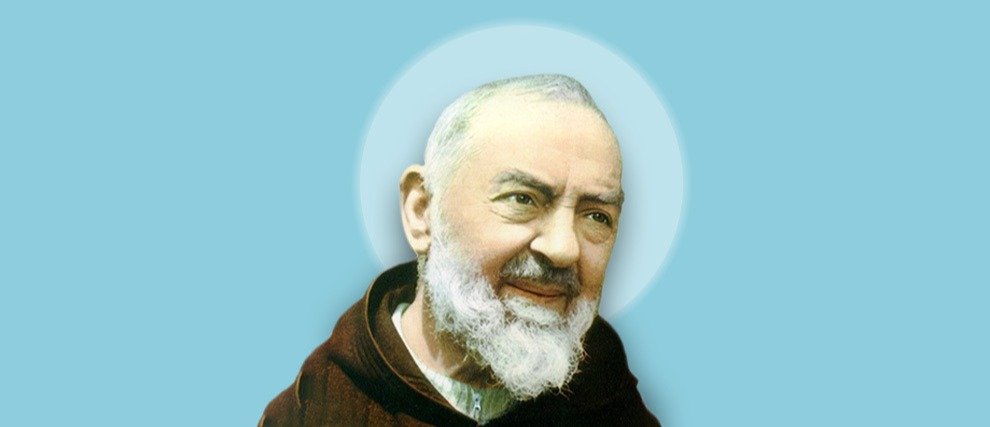The Origin of The Lord's Prayer
The 'Our Father', or The Lord’s Prayer is a pillar of Christian prayer. Catholics, Orthodoxs and Protestants all say it daily and know it well: it is the Universal Christian Prayer. But where does it come from?
The Our Father
“Our Father,
who art in Heaven,
hallowed be Thy name;
Thy Kingdom come,
Thy will be done on earth as it is in heaven.
Give us this day our daily bread,
and forgive us our trespasses,
as we forgive those who trespass against us;
lead us not into temptation,
but deliver us from evil.
Amen.”
The Lord’s Prayer in the Gospels
The 'Our Father' as we know it today originates from The Gospel of Matthew, in an extract of The Sermon of the Mount (Matthew 6:9-13): “Pray then like this: Our Father who art in heaven, hallowed be Thy name, Thy kingdom come, Thy will be done, on earth as it is in heaven. Give us this day our daily bread; and forgive us our debts, as we also have forgiven our debtors. And lead us not into temptation, but deliver us from evil.”. After the Disciples had come to Jesus to learn how to pray, He taught them The Lord’s Prayer, that was transcribed by Saint Matthew during the occasion.
The Lord’s Prayer is also recorded in The Gospel of Saint Luke, one of the four Evangelists. However, this version uses different words: “ When you pray, say : Father, hallowed be thy name. Thy kingdom come. Give us each day our daily bread; and forgive us our sins, for we ourselves forgive everyone who is indebted to us; and lead us not into temptation.” (Luke 11:2-4).
The Church is more inclined to use the version in The Gospel of Matthew, to which some words were added. The word “Father”, from “Abba” or “papa” - very familiar terms to address God with - changed into a more formal “Our Father”, restoring the distance between a transcendent God and us. Our difference with the Lord is further emphasized by the addition of “in heaven” in The Gospel of Matthew; the full sentence establishes our worldly nature, fundamentally distinct from the celestial nature of God. Matthew’s more complete version of The Lord’s Prayer was reportedly chosen by the Church because it is more accessible to a larger number of people: some of the vocabulary can vary from one version to the other, like with the word “debts” which turn into a more evocative “sins” in The Gospel of Luke. The opening words “Our Father” also helps highlight the universality of the Church: we are all the children of God the Father, members of the Body of Christ.
Though Jesus probably taught his disciples in Aramaic, only the Greek translations of this prayer are available to us in The Gospels of Luke and Matthew. Those versions are themselves modifications of the original text, which have in turn been translated into every living language (Spanish, French, Italian, German, etc.) so that we could say the prayer together. For centuries, it was only authorised to say the Our Father in latin, with the “Pater Noster”. In the XVI century, the Protestant Reformation standardized the trend of translating The Lord's Prayer into living languages, after which, in the XX century, the use of the vernacular during Masses was mandated.
Our Father in Jewish tradition
Like Hail Mary, The Lord’s Prayer is composed of two parts: the first is dedicated to praising the Lord, and the second to making requests. This formulation structure takes its roots from Jewish tradition. Let’s not forget that Jesus himself was Jewish!
The first part of the prayer, about sanctifying the Lord’s name and the arrival of His Kingdom, hails from the Kaddish, one of the central texts in Jewish liturgy, as well as from the Amidah. Moreover, both those texts are almost contemporary to the time of Christ. The second part of the prayer finds its origins in various parts of the Talmud and its treaties.
Therefore, the 'Our Father' is a unifying prayer: Whether we practice Catholicism, Protestantism, Orthodoxy, or Evangelicalism, etc. we all say the same prayer, descended from the Jewish faith. Hozana helps you understand more about the roots of Christianity and strengthen your beliefs by offering you daily opportunities to join prayer communities: together with other Christians, take a time of prayer to
, or reflect on the words of the Fathers or the Church !Want to see this prayer in different languages? On Hozana, you can find the German Our Father, along with the French, Spanish, Italian, Latin, or Aramaic versions!

